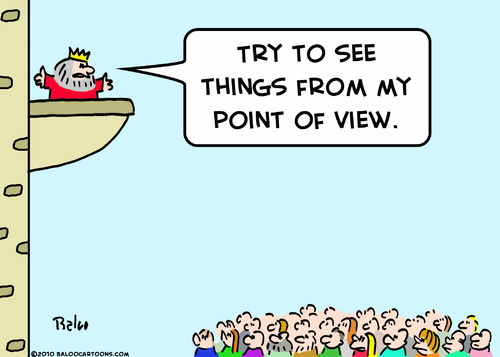(Originally posted on https://www.patreon.com/sness)
Let me start off by saying, yet again, how right-on it was to have you partner us in your workshop – it came at the ideal time and the content was thoughtfully appropriate to our present challenges. While I felt highly vulnerable and tender throughout the workshop itself, I left the call feeling a sense of relief and empowerment. Then at our next rehearsal, I walked in feeling freer and ready to be available to my ensemble members and to whatever the creative process would bring that day. Fear dissolved. Presence increased. It was palpable!
What does it mean to “be authentic” at work?
Or to connect, when you’re under pressure from both time and hierarchy? When the goal of the day isn’t to connect – it’s to get things done?
In the past month, I’ve been getting a crash course in corporations. I’ve worked for years with self-selected communities, places where participation is guaranteed and where everyone – except the facilitators – is on the same level. The safety of equality and mutual participation allows for vulnerability without consequence (externally, at least), and – we hope – is a training ground for people to bring the selves discovered in safety into more pressurized environments like work and family.
I’ve gotten to try a lot of AR skills outside of the workshops, through the years: with my parents and grandparents, at parties and social gatherings, in relationship. But, because I’ve worked for myself since 2012, I’ve never gotten to see how AR applies in a corporate setting. Until now.
A few months ago, I was approached by 2 groups at almost the same time. One is the technology team at a multi-state training company for graduate school teachers. They heard about Authentic Revolution through the Atlantic article. The other is one of the largest food co-ops in Austin, who heard about us through a former Games facilitator.
Who wants to get real?
People have been encouraging me for the last several years to get into work with corporations. Thus far, I resisted doing any marketing for that, because I didn’t feel qualified for such an environment: I’ve never worked in a company, so how should I know what one needs?
I did poke at the field a little several years ago, putting out a call on Facebook for companies who might want relational work. To my surprise, more than 10 companies responded, and I ended up working with two and later being contracted by a third. One of those companies gave the quote featured at the start of this article. One I’m working with now said the following after our first session:
I loved that we took a pause from work and created a space where our team can learn more about each other. This meeting has been one of the best work meetings I have ever had.
I liked working with these companies. One was a dance troupe in San Francisco, for whom I did a 2-hour online Games session including Hot Seat and one of my own games, Agency and Communion. Another was a wellness center in Austin, for whom I led a circle; the last (the contracted one) was a remote engineering firm for whom I led a totally doomed 2-hour event over phone, after the video technology failed, at 1 am due to time zone differences.
The event was supposed to help the firm’s customer service representatives work better with callers. I imagine I might have had some good things to say, if almost every person on the call hadn’t had an accent too strong for me to understand more than about one out of every three words. I held my own, and another member of the engineering team stepped in to save the day; but this didn’t leave me more confident in my skills at leading for companies.
So – I didn’t pursue the field further. I had no serious interest there; I liked the work I was doing already in training facilitators. But, when I was approached a couple months ago by two companies and then a third, one of the top alternative pharmacies in town, I trusted the signal to try again.
Part of your world…
I feel very energized after our meeting because this meeting provided an opportunity for us to share our feelings and know that we all have struggles but are trying our best. In summary, the meeting makes me feel human, and not just another worker.
My first meeting was with the food co-op. I came in prepared: before ever talking to a live human, I asked over email (where we’d been communicating) for all the documents they could give me on their culture, employee surveys, and any former relational work they’d done. They sent me more than 100 pages of material and I read it all.
I was SO nervous going in. I had imposter syndrome shouting in my ear: “What are you DOING? You’re not a consultant! You’ve never done this exact thing before. They’re going to see right through you and you’ll look like a fool.” I went in, sat down, and…
Related.
This happened every time. I spent hours preparing for every meeting, with the co-op and later the training school. I would have questions prepared, whole plans, even a powerpoint (really! People still make those!). I would meet with multiple consultant friends for advice and interview or survey multiple members of each organization for research and buy-in purposes. I would scan the internet for any information that could help me meet this group’s needs. I’d go in with pages of notes. But every time, my main tools were those I was proposing to teach.
Genuine curiosity
Listening for the deeper values
Reflecting, summarizing, and empathizing
Checking my assumptions
Caring honestly, on a personal and professional level.
I would spend the meeting getting the world of whatever manager or executive I was talking to, until I could synthesize what they wanted into a couple main points. Then – thanks to my fantastic business coach Shay Pausa, and with the help of top-notch consultants like Simon D’Arcy and Jake Bornstein – I learned how to create a consulting proposal and make a pitch. And all three companies agreed.
I enjoyed connecting on a personal level. This session impacted me far more than previous trainings which were specifically targeting just work related skills. I didn’t feel as ‘on the spot’ as I do in other participation heavy meetings given the more personal nature of the reflections and the pre-work prompts.
“Whatcha Doin’?”
Along with talking through and testing my assumptions (in a healthy way) with my colleagues, I’ll work on improving my listening by diagnosing and limiting the sabotaging behaviors and blockers we discussed.
I found an amazing co for the sessions with the food co-op and training school: a fellow AR facilitator who is in grad school for psychology at the University of Texas. He and I put together plans adapted to the needs of each company: two 2-hour online sessions for the tech team, two 1-day sessions with additional coaching for the food co-op.
With the pharmacy, I’ve been doing private coaching for 2 of their managers, which has been REALLY fun – I’ve gotten to apply both my relational tools, and the organizational development stuff I’ve studied and practiced for 8 years now, first in the housing co-ops and then in AR communities and my own company. Many relational problems are actually structural problems, and being able to address both levels is essential!
Norian and I have done one session so far, an online one, and are preparing for our first one-day next Saturday. Some of the things we’ll be training include trust-building games (with much more context than in a usual AR session, as one thing I’ve learned about companies is that the purpose of everything should be super clear), identifying and resolving conflict, how to address interpersonal issues directly and clearly, and how to communicate a vision in such a way that it is both understood and gets buy-in from employees.
With the pharmacy, I’ve gotten to enjoy seeing these tools put into practice between the weeks I work with those managers. Already their employees are starting to open up more, and the managers seem to be getting clearer on their needs and boundaries at work.
I cried at the end and didn’t even realize that I was going to cry. I’m drained, but as Sara has said, drained in an open way.
In Conclusion,
working with companies has been a lot more fun than I expected – and, just as Shay kept telling me, mostly requires the skills I already know.
And. Before the last few months, I don’t think I would have been able to handle these contracts, just at a level of self-confidence and psychological safety. In the last few months, inside and outside of AR work, I seem to have reached a new plateau of self-confidence and skill. Now, work in an entirely new field with new constraints is doable in a way it wasn’t before.
What’s caused that? I think it’s listening more closely to myself.
That’s been a painful process. I’ve become more internal than at almost any time since high school. I’m hyper-sensitive to social interaction, easily tired, and want nothing more than to write, meditate, and exercise as much as I can. I’ve started recognizing my boundaries and desires. In fact, as part of that process, I’ve finally acknowledged how much energy and pain it takes for me to run ALFTs these days, and have decided to step away almost entirely from those trainings and hand them to the leads I’ve been mentoring for the past few years.
Much is changing. My new foci are A) growing Authentic World, B) working with more companies remotely, C) making the ALFTs licensable and self-sustaining, and D) finishing the online facilitator training(s) I’ve finally completed a draft of – 250 pages of writing! I also want to support my company members as best I can, logistically and emotionally. Home, friends, family, and health are all important now.
Thanks for being with me on this journey.
Hugs,
Sara

